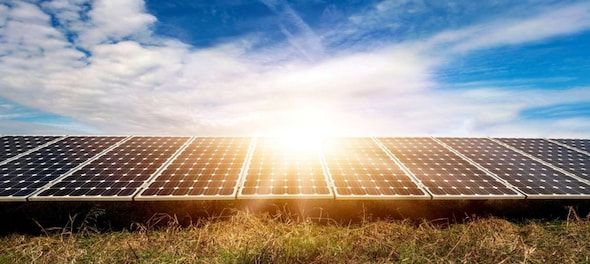
The government’s policy focus on renewable energy remains strong, in light of the Prime Minister’s announcement of the intent to increase the non-fossil fuel-based capacity to 500 GW by 2030. India also aims to meet 50 percent of its energy requirement from renewables by 2030. This itself implies an annual renewable capacity addition of 42 GW over the next eight years. It also implies a significant investment potential at about Rs 20-22 lakh crore and additional investment of about Rs 12-15 lakh crore to augment transmission network as well as storage capacity.
Given the strong project pipeline through the central intermediary, the Solar Energy Corporation of India (SECI), and state nodal agencies, about 55 GW of the projects remain under implementation, and provide a healthy visibility in renewable capacity addition over the next 2-3-years. Superior tariff competitiveness of renewables for the off-takers, both in the utility and commercial & industrial (C&I) segments, as well as sustainability initiatives for adoption of renewable energy remain the fundamental and structural demand driver for investments in this area going forward.
ALSO READ
Given the significant funding requirements in renewables, the availability of adequate long-term financing avenues at cost competitive rates remains important for achieving these targets. In this context, policy measures are expected to augment the long-term financing avenues for the renewable energy segment. Given that the share of renewables is expected to rise to about 28 percent in the overall energy mix, even assuming a 300-GW renewable energy (excluding hydro) scenario by 2030, strengthening of the transmission network, and the storage capacity to ensure grid stability and balancing requirements remain critical.
As a result, incentives and policy measures are required to promote investments in the energy storage segment (either in the form of battery storage or pumped storage).
With a focus on domestic manufacturing of cells and modules, various policy measures have been announced over the past 18-24 months through the Production-Linked Incentive (PLI) scheme, the CPSU scheme and duty protection through the basic customs duty (BCD). Still, a further increase in the funding outlay for the PLI scheme for solar module manufacturing is expected, given the strong interest from prospective players under the recent tender issued by the Indian Renewable Energy Development Agency (IREDA). Additionally, the availability of fiscal concessions and/or interest subvention benefits, if provided, may further benefit integrated solar module facilities (from polysilicon to module). This would in turn help augment the domestic integrated module-manufacturing capabilities.
The weak financial profile of state-owned distribution utilities continues to remain a key area of concern for the entire value chain in the power sector. Achieving a sustained financial turnaround in state-owned distribution companies remains critical, to achieve the renewable energy capacity targets announced by the government. This would require a proactive focus by state distribution companies on improvement in the operational efficiency and allowing timely pass-through of cost variations through tariffs to consumers.
As a result, a continued focus on measures to accelerate the implementation of various reforms in the distribution segment is expected, with a higher budgetary allocation towards strengthening the distribution network under the Reforms-based and Results-linked scheme announced in the last Budget. Further, an increase in the budgetary allocation is expected for strengthening the transmission infrastructure (both at intra-state and inter-state levels), in raising power from the regions having a high renewable generation potential.
With a strong policy focus on renewables, and the transmission and distribution network, Budget measures are expected to further provide a stimulus to support the investment requirements in renewable energy, and aid the availability of long tenure funding avenues.
--Girishkumar Kadam is Senior Vice President and Co-Group Head-Corporate Ratings at ICRA. The views expressed in this article are his own.
Check out our in-depth Market Coverage, Business News & get real-time Stock Market Updates on CNBC-TV18. Also, Watch our channels CNBC-TV18, CNBC Awaaz and CNBC Bajar Live on-the-go!


Mark Mobius reveals how markets will react if NDA wins 400+ Lok Sabha seats
May 15, 2024 8:09 PM
Wine shops and bars to remain shut for 4 days in Mumbai in 4 weeks, check details
May 15, 2024 7:52 PM
INDIA bloc will win majority seats in Bihar, says Tejashwi Yadav
May 15, 2024 4:20 PM

